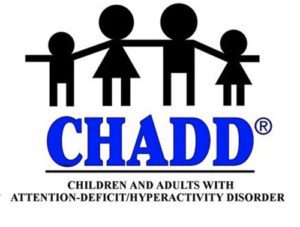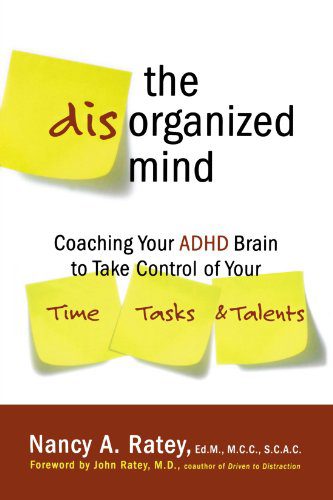Nancy Ratey is a gift to the ADHD community. Not only is she a well-respected ADHD coach, but she also has ADHD herself and can offer an interesting perspective that others may not.
You might be asking yourself: “Why would an ADHD coach suggest a book that is intended to help people coach themselves?” The simple answer is, not everyone is ready for in-person coaching. In addition, in-person coaching takes a lot of resources: time, energy, and financial, just to name a few, and everyone does not have access to those resources.
The Disorganized Mind offers an alternative. Here are some highlights from Ratey’s book:
When they embark on the coaching journey, the first question one needs to ask themselves is, “am I ready?” You will know you are ready when you can admit to and identify the problem that needs to be resolved, when there is a willingness to identify tools and strategies to work through the problem, and the resilience to adhere to use those tools and techniques to the best of your ability. That doesn’t mean perfectly; that means to the best of your ability.
Ratey uses the acronym ANSWER for the six basic steps for the self-coaching journey:
- Acknowledge and accept your ADHD and associated challenges.
- Narrow in on one or two issues on which you initially want to work.
- Strategize a plan of attack using strength-based structures.
- Work and follow the plan.
- Evaluate your progress on a regular basis to see what is working and what is not.
- Repeat the process so your guard does not let down.
Here are just a few of Ratey’s suggested strategies for managing time:
Schedule breaks: Mental and physical breaks are essential, and hyperfocus can get in the way. Scheduling time to walk away actually may provide a higher level of productivity.
Designate time for tasks: Creating blocks of time to do a task is essential. Without a plan, we may not make the appropriate transition from a critical task to another.
Manage expectations: Although we’d like to get ten things done in a day, realistically, we may only be able to do two. Setting realistic goals will set you up for success.
Be accountable: There is little more powerful than an accountability partner. Tell a trusted individual what you plan to do by when, and ask them to check in on your progress.
Measure time: For any repetitive tasks (getting ready for work, making dinner, taking out the trash, etc.), track how long it takes. Once you have the data, planning becomes much more manageable.
A big part of my coaching practice is helping clients with time management, prioritization, and distraction reduction. Ratey suggests asking these primary questions when it comes to sticking with your time management goals and preparing for and reducing distractions:
- What might get in the way of my primary commitment?
- What can I do to stop myself from engaging in the distraction?
- What can I do to prevent the distraction in the first place?
In addition to managing time and distractions, The Disorganized Mind will give you a roadmap for curbing procrastination, impulsivity, managing transitions, and strategies for creating a balanced life.
Whether you are ready to embark on an in-person or self-directed coaching journey, The Disorganized Mind is a gem that will help put you on the path to success.
Cindy Jobs
Looking for more information?
Click here for ADHD-friendly Time Management Tools
Click here to schedule a complimentary breakthrough session.
For more helpful information, follow me on Facebook.








